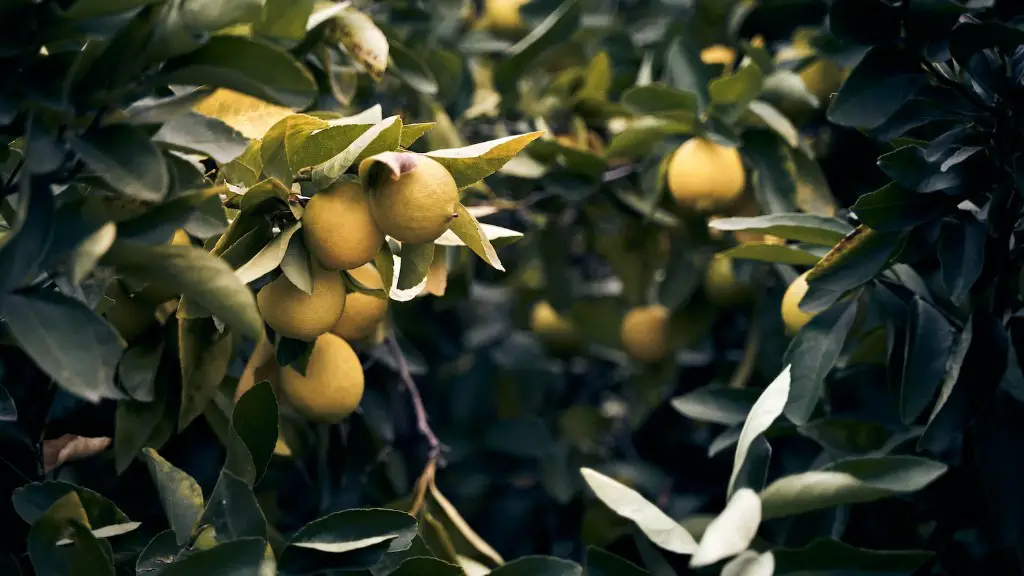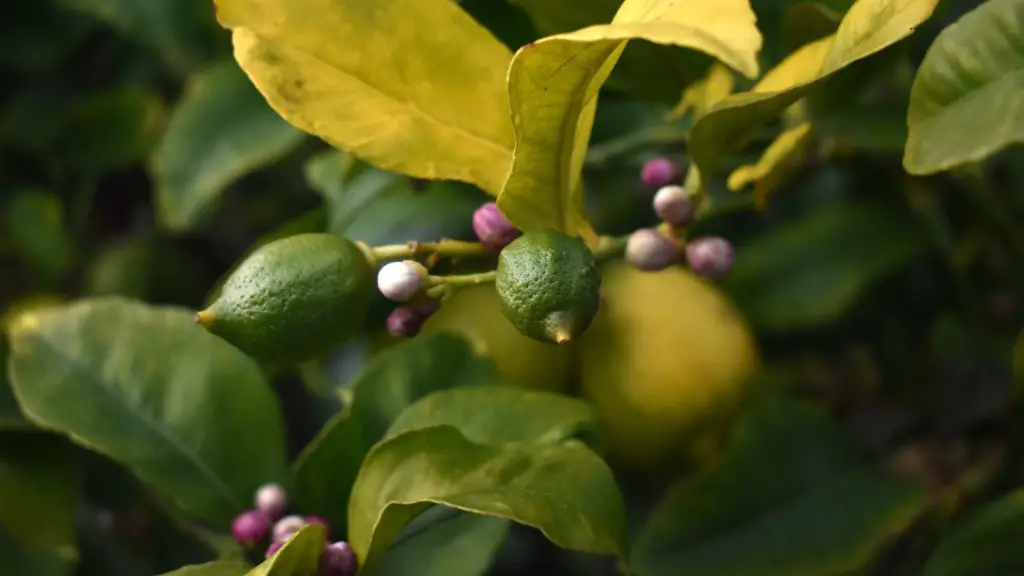Cultivating and caring for a lemon tree is a great way to not only bring a lovely bit of greenery and a natural scent to your home, but also provide yourself with an impressive supply of tasty and refreshing lemons. To keep your tree thriving, there are a few key steps to follow. Firstly, lemon trees need ample sunlight. Ideally, the trees should be exposed to about 10 hours of sunlight each day, so if you are able to locate your lemon tree in a bright, sunny spot, you will have taken the first step towards keeping your lemon tree healthy. Secondly, make sure the tree is getting plenty of water. Lemon trees require consistent watering and need to be kept moist in order to thrive and produce quality fruit. You should water your tree every two or three days, or when the top few inches of soil become dry, whichever comes first. Thirdly, adding fertilizer to your lemon tree is important to help it grow and stay healthy. Fertilizers give your trees the essential nutrients they need to stay strong and productive. Making sure to fertilize your tree once a month or two is an important step. Fourthly, pruning your lemon tree is critical to helping it blossom. Pruning your tree helps keep the growth manageable and encourages larger yields of fruit. As for the pruning technique, you should aim to remove about a quarter of your trees’ canopy each year.
Feeding and Supplementing
Fifthly, supplementing your lemon trees’ soil with compost or manure is a great way to help it produce larger, healthier fruits. To do this properly, you should use a light layer of compost or manure around each tree and gently water it in. This is typically done once a year during early spring, and depending on the size of your tree it could require several buckets of soil. Sixthly, pests are a common problem for lemon trees, so ensuring that you’re keeping an eye out for these can prevent any potential issues. Common pests include spider mites, leafhoppers, whiteflies, and aphids, and they can all lead to a decrease in fruit growth and quality. Fortunately, there are several ways to keep these pests away, such as planting companion plants, releasing predatory insects, and spraying with insecticides. Lastly, make sure your lemon tree has enough space to grow. If you have a large area and can provide enough space for your tree, it will be able to grow and produce a larger quantity of fruit. Give your tree at least 8 square feet of area, and make sure to keep the space around it weed-free.
Harvesting and Pollination
Harvesting lemons when they are ready is an important step in making sure your lemon tree has a chance to thrive. The most common sign of a ripe lemon is its bright yellow colour, however, if the top of the lemon has turned a light yellow, it’s probably ready to be picked. Additionally, if you gently squeeze the lemon and feel that its leathery outer layer has softened, it’s time to pick it. Last, but certainly not least, pollinating your lemon tree is essential if you want it to grow and produce fruit. The most effective way of accomplishing this is to hand-pollinate the flowers. To do this, you’ll need to use either a small artist’s brush or a cotton swab to collect the pollen from the male flower and transfer it to the female flower.
Encouraging Fruiting
Encouraging your lemon tree to fruit is an important step in making sure your lemon tree has a chance to thrive. The most effective way of encouraging your lemon tree to fruit is to fertilize it. Fertilizers give your trees the essential nutrients they need to stay strong and productive. Making sure to fertilize your tree once a month or two is an important step. Additionally, taking measures to manage pests can also help encourage fruiting. Common pests include spider mites, leafhoppers, whiteflies, and aphids, and they can all lead to a decrease in fruit growth and quality. Fortunately, there are several ways to keep these pests away, such as planting companion plants, releasing predatory insects, and spraying with insecticides.
Protection From Cold and Heat
Protecting your lemon tree from extreme temperatures and weather conditions is crucial to keeping it healthy. Lemon trees grow best in moderate climates, and it’s important to ensure that they are protected from extreme cold or hot temperatures. If necessary, you can use shade cloth or a tarp to protect the tree from direct sunlight and to help keep the temperature consistent. Additionally, during extreme cold weather, it’s important to make sure your tree is well insulated and surrounded by warm soil to prevent it from being damaged by the cold. Lastly, if you live in an area with seasonal snow and frost, it is wise to keep your tree sheltered from the cold and add some protection in the form of a warm mulch circle to prevent any potential damage due to the cold.
Mulching and Watering During the Summer
Mulching and watering your lemon tree during the summer months is essential for keeping it healthy. The mulch around the base of your lemon tree will help prevent erosion and keep the soil moist during the summer months. Additionally, you should also make sure to water your tree during extended periods of hot weather. If you’re away for a few weeks or are unable to water your tree during a particularly hot summer, you should consider investing in an automated irrigation system.
Using Fungicides
Fungicide use is an important part of keeping your lemon tree healthy and happy. The most common fungicide used in lemon tree cultivation is copper sulfate, which helps prevent the spread of fungi and bacteria. Additionally, using a fungicide gives the tree an extra layer of protection from potential threats, such as root rot and other fungal diseases. When applying fungicide to your lemon tree, it’s important to be sure to follow the instructions on the label closely and make sure to use the recommended amounts.

